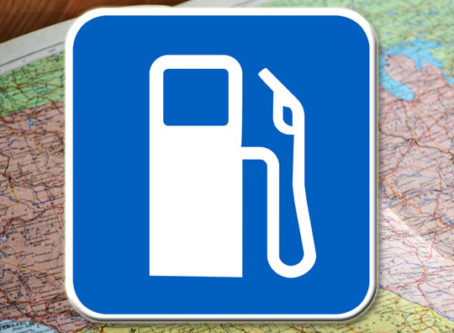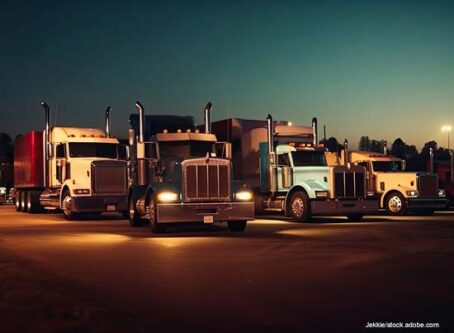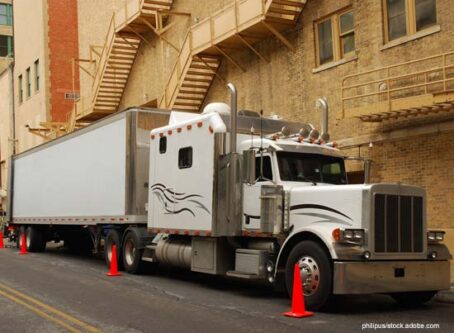Action on ticket cameras pursued in nine states
New federal guidance authorizing states to tap billions for roadway safety programs is expected to boost the pursuit of automated cameras to ticket drivers.
Transportation Secretary Pete Buttigieg this month unveiled plans to address a record increase in traffic deaths on the nation’s highways. Automated cameras were included among the tools identified to aid reducing fatalities.
The U.S. Department of Transportation’s national roadway safety strategy addresses the administration’s goal for the program.
“Automated speed enforcement, if deployed equitably and applied appropriately to roads with the greatest risk of harm due to speeding, can provide significant safety benefits and save lives.”
Issue addressed in at least nine statehouses
Time will tell whether the new federal guidance affect efforts at statehouses that are in favor of or in opposition to the use of automated enforcement cameras.
More than 500 communities around the country employ red-light and/or speed cameras to nab drivers who disobey traffic rules, the Insurance Institute of Highway Safety reports.
Officials with the Owner-Operator Independent Drivers Association say the focus on the revenue-generating devices ignores the more logical and reasoned approach to roads and traffic: keep traffic moving in as safe a manner as possible.
Below is a rundown of recent statehouse activity on ticket cameras.
Alabama
About a dozen cities around the state of Alabama use red-light cameras and/or speed cameras. The list includes the cities of Montgomery, Tuscaloosa and Selma.
One Senate bill would add the city of Birmingham to the list.
Sponsored by Sen. Rodger Smitherman, D-Birmingham, SB149 would allow the state’s second-largest city to use red-light cameras and speed cameras. Violators would face fines starting at $60.
The bill is in the Senate Governmental Affairs Committee.
Arizona
Identical bills in both chambers of the Arizona Legislature would prohibit the use of photo enforcement on state roadways.
Photo enforcement is available to 13 communities around the state, the Insurance Institute of Highway Safety reports.
SB1134 and HB2282 would outlaw use of red-light and speed cameras to enforce traffic rules.
Sen. Wendy Rogers, R-Flagstaff, has highlighted her concern about city governments using the devices as money makers for her pursuit of statute to forbid photo enforcement. The rule would apply to a local authority and state agency.
The House Transportation Committee was scheduled to discuss HB2282 on Feb. 9 but the bill was dropped from the agenda. The Senate Transportation and Technology is scheduled to discuss SB1134 on Feb. 14.
Florida
One Florida state lawmaker has renewed an effort to ban municipalities from using red-light cameras to issue citations.
There are 47 local governments around the state operating 485 red-light cameras, according to the Florida Department of Highway Safety and Motor Vehicles. Fine amounts of $158 are dispensed for actions that include turning right on red, failing to come to a complete stop, or crossing the line where a camera is focused on an intersection.
Numbers available from the agency show that municipalities statewide have sent out nearly 1 million notices of violation in fiscal year 2020-2021.
Additionally, the state’s numbers show the total crashes occurring at intersections before and after red-light cameras has increased. The number of fatal crashes, however, has decreased.
Rep. Anthony Sabatini, R-Howey-in-the-Hills, has introduced a bill to repeal the program permitting use of the ticket tool. Locales with programs already in place would be required to remove the devices by July 2025.
He has introduced legislation to kill the program in each of the previous four legislative sessions.
Sabatini has cited the program’s failure to improve driving behavior for his repeated attempts to repeal the law.
His bill, HB6029, is in committee.
Illinois
Multiple bills at the Illinois statehouse are intended to rein in use of ticket cameras.
There are 68 locales around the states that use red-light cameras, the Insurance Institute for Highway Safety reports. The city of Chicago has red-light cameras and speed cameras. Additionally, speed cameras are permitted in work zones.
Sponsored by Rep. Deanne Mazzochi, R-Elmhurst, HB4102 would permit citizens to challenge red-light camera citations.
Mazzochi cites corruption concerns with automated enforcement programs. She highlights the prosecution of former state Sen. Martin Sandoval, who allegedly accepted bribes for pursing adoption of red-light camera enforcement.
Her bill would allow drivers cited for red-light camera citations to challenge the tickets in court if the cameras in question are “associated with civil or criminal corruption charges.”
“When the placement of a red-light camera has nothing to do with safety but involves a cynical revenue grab inextricably linked to public corruption, individuals should have the right to protest them in court, and judges should be empowered to reject these tickets,” Mazzochi said in a recent news release.
She adds that over a 10-year period municipalities around the state have reportedly collected over $1 billion from red-light cameras.
Another bill, SB3423, would repeal authority for local governments to use red-light cameras.
Indiana
One Indiana Senate bill halfway through the statehouse covers the use of ticket cameras along certain stretches of roadway throughout the state.
State law now authorizes fines between $300 and $1,000 for speeding in work zones. Statute does not allow nor prohibit the use of speed cameras.
A fiscal impact statement attached to the bill shows an average of 1,800 guilty verdicts in Indiana were entered for speeding in a work zone annually over the past six years.
The Senate voted to advance a bill to authorize the use of cameras in highway work zones to enforce speeds.
Sponsored by Sen. Jon Ford, R-Terre Haute, SB179 would authorize fines up to $150 for exceeding the posted speed in work zones by at least 11 mph. Highway workers would be required to be present when a speeding violation occurred.
The bill has moved to the House Roads and Transportation Committee.
Iowa
Three bills in the Iowa Legislature address concern about the use of automatic traffic cameras in more than a dozen communities across the state.
The first bill would require cities to show there is a public safety need for the ticketing tool. SF2062 would also mandate localities provide at least one alternative measure to improve safety at the specific location that a camera is posted.
The second bill, SF2078, would require speed violations to exceed 20 mph over the posted speed to warrant an automated citation. Fine revenue collected by an agency would be capped at 250% of all municipal infraction and scheduled fines from traffic citations in the previous fiscal year.
One more bill would go a step further. SF2061 would outright ban all automated enforcement cameras throughout the state.
Kentucky
A Kentucky Senate bill would bring red-light cameras to the state.
Sponsored by Sen. Reggie Thomas, D-Lexington, the bill would authorize the use of automated devices to be posted at intersections to snap photos of vehicles running red lights.
Violators would face $50 fines.
SB19 is in the Senate Transportation Committee.
Oregon
There are 11 cities in Oregon, including Portland, where photo radar is allowed on segments of roads.
A 2021 state law authorized all cities with populations of at least 50,000 to use speed cameras. The change affects about a dozen locales.
Oregon statute requires police to review potential violations. Tickets are issued for violators that exceed the posted speed by more than 10 mph.
One House bill would relax the requirement for police to review potential violations. Instead, HB4105 would allow “trained staff” other than police officers to review camera photos.
Rep. Jeff Reardon, D-Happy Valley, told members of the House Rules Committee the change would help agencies who often have open positions and need officers to work overtime to review potential violations.
Reardon highlighted plans in Portland to expand the city’s photo radar program. He said the cost of the program will be increased if officers are required to review potential violations.
Washington
A bill in the Washington House would expand the state’s use of automated enforcement via ticket cameras.
State law allows the use of speed cameras in school zones.
Sponsored by House Transportation Chairman Rep. Jake Fey, D-Tacoma, HB1969 would authorize cities to operate at least one speed camera outside of school zones. One additional camera could be posted outside school zones for every 10,000 residents.
One provision in the bill would require cameras to be placed “in a manner that limits drivers from diverting to alternative roads to avoid them.”
Fine revenue would be evenly split between the state and locales where the violation occurred.
Fey told the House Transportation Committee the bill is one way to address an increase in deaths on roadways and a shortage of patrol officers.
Critics question whether the intent of the ticket camera legislation is to address safety concerns or to raise as much revenue as possible. LL
More state trends
Keith Goble, state legislative editor for Land Line Media, keeps track of many trends among statehouses across the U.S. Here are some recent articles by him.









